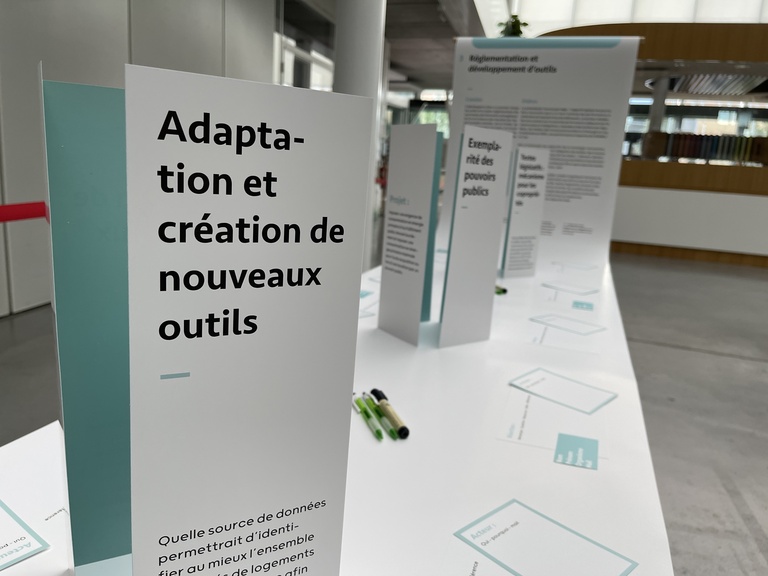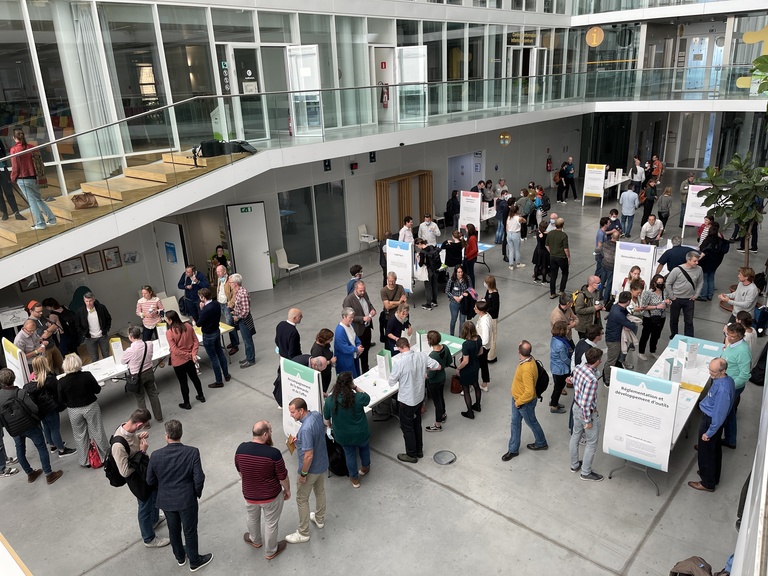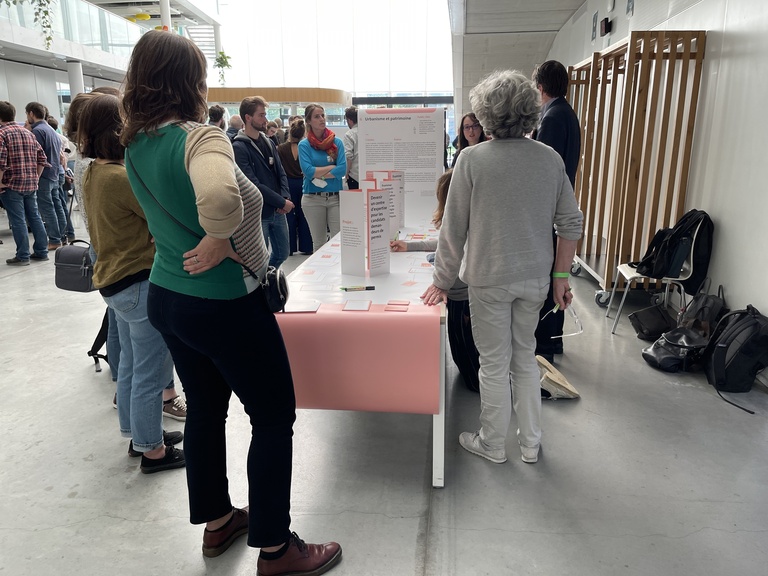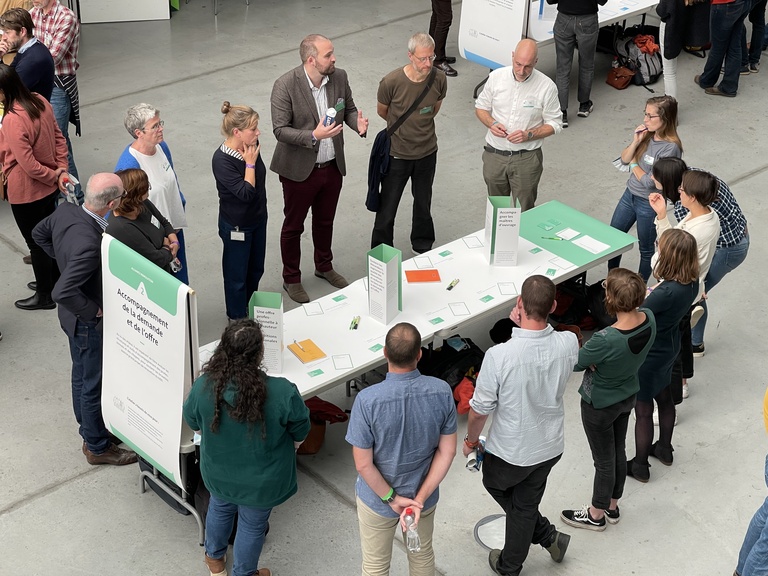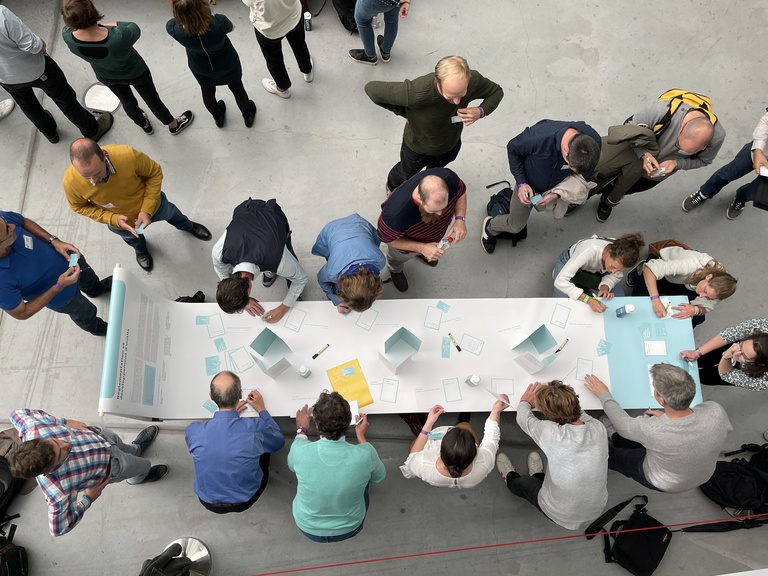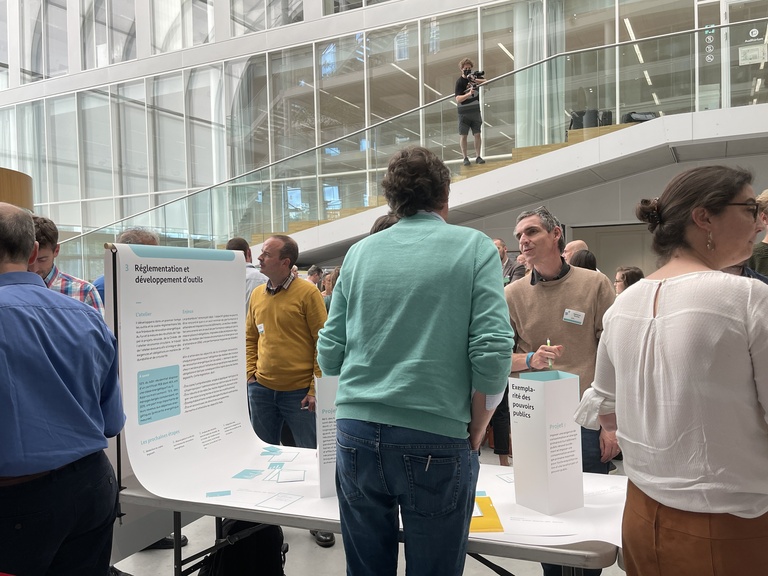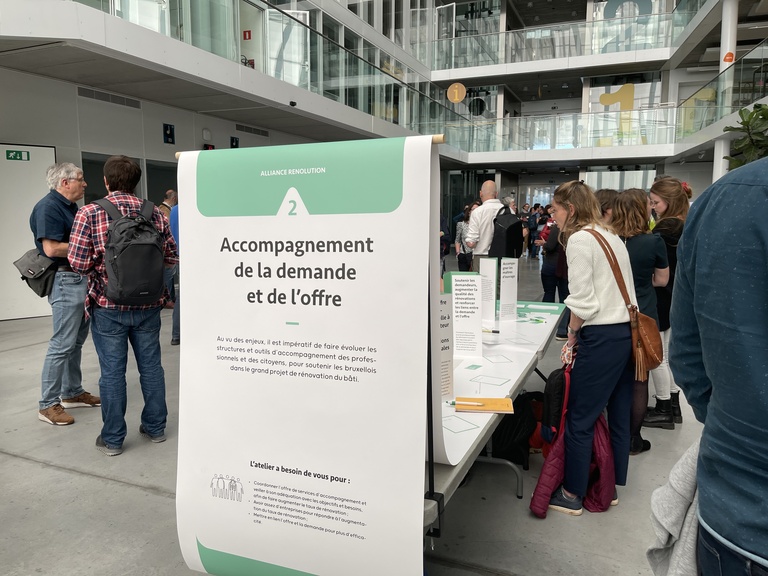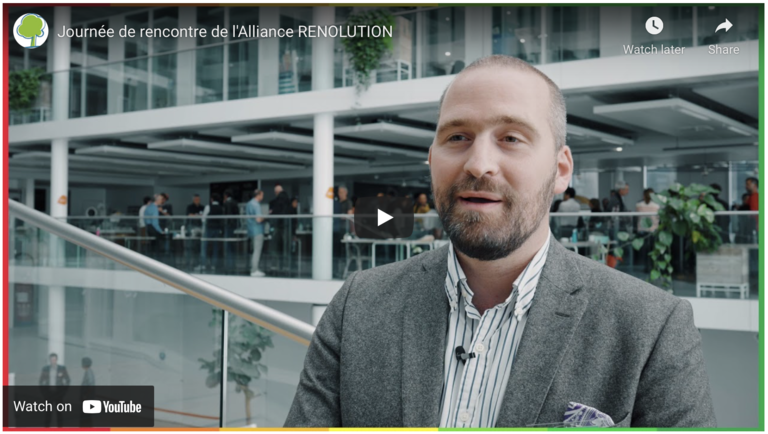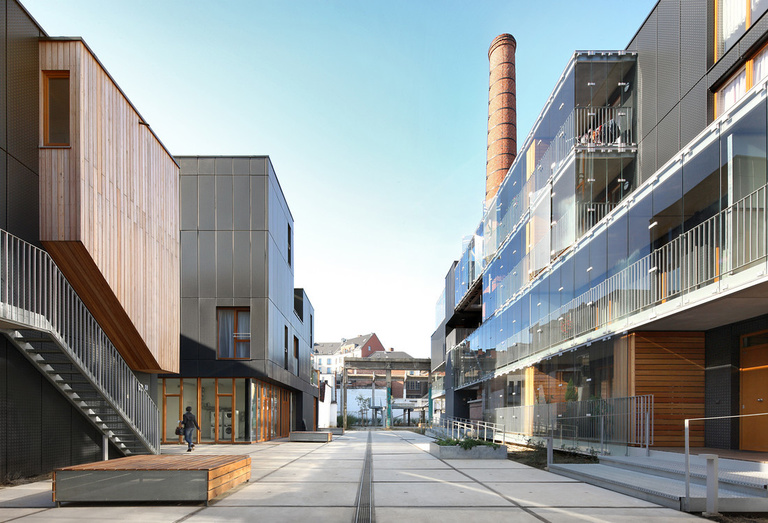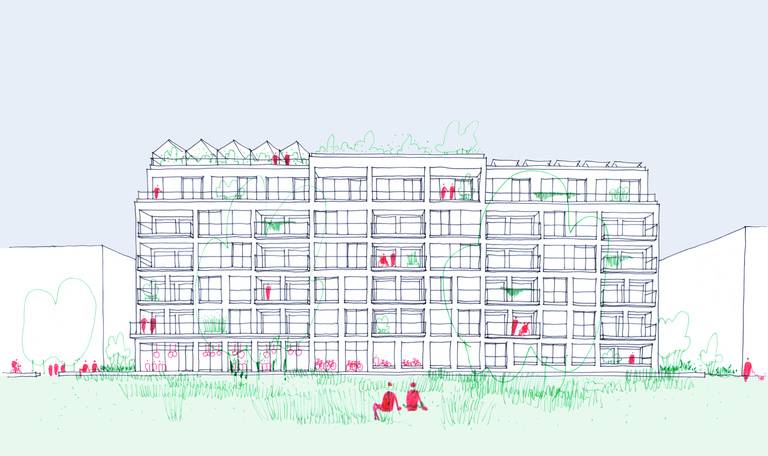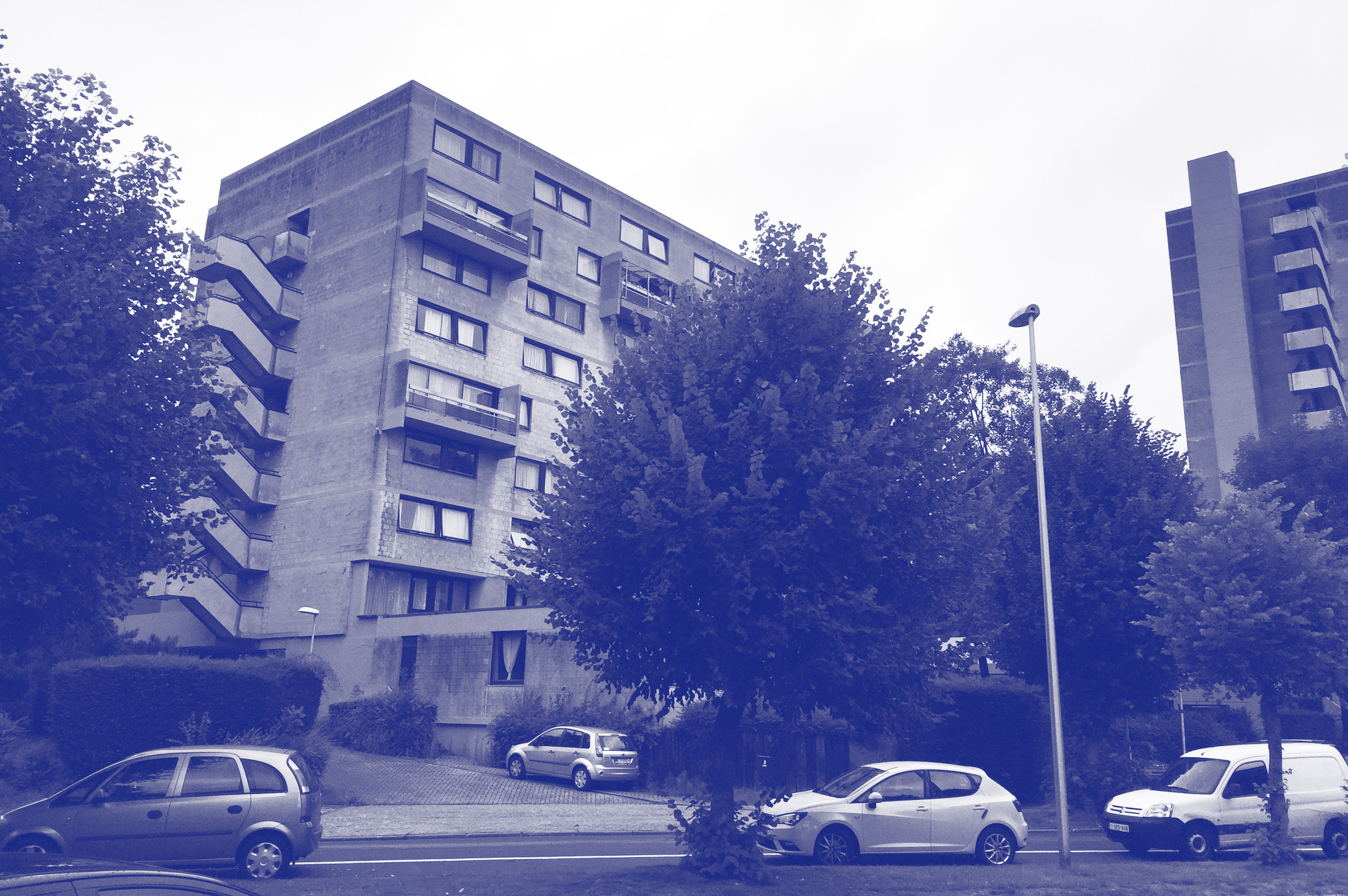An Alliance for Renovation
Establishment of a multi-actor collaboration to carry out the energy-efficient renovation policy of the Brussels-Capital Region
Collective intelligence
Stakeholder management
Energy transition
In its Energy-Climate Plan, the Brussels Region is committed to reaching carbon neutrality by 2050. Today, however, more than half of the greenhouse gas emissions in Brussels comes from the energy consumption of buildings. This is the reason why the Region, through its “Strategy for reducing the environmental impact of buildings”, has made the ambitious choice to impose a gradual obligation for renovations by 2050. This implies that sooner or later, all individuals as well as the private and public sectors will have to renovate their buildings.
Thus, a revolution and a considerable challenge is about to take place for the Brussels population, as well as for the authorities responsible for implementing the policy. A large community of actors (both private and public, in construction, energy, employment, training, banking etc.) must be mobilized and work together, which requires significant coordination. From the start, this has been the mandate of the Alliance (now labeled as Alliance Renolution). Méthos, in collaboration with Vraiment Vraiment, accompanied its creation, structuring and launch.
The Alliance was designed as a place for dialogue and collaboration between the construction sector, banks, notaries, architects, tax experts, etc. and regional and communal administrations on energy renovation issues. Its challenge is to make the policy measures consistent and thus create a catalyst for energy and sustainable renovation at the regional level.
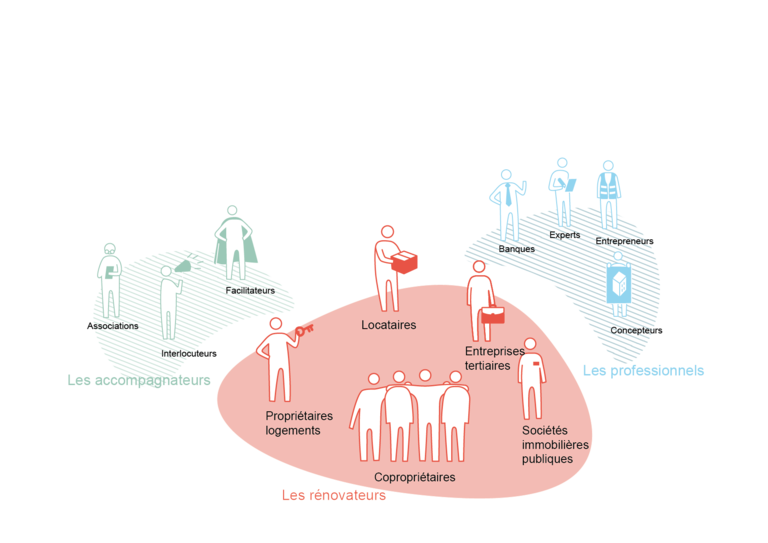
image © vraiment vraiment
Cross-functional collaboration
For Méthos, it was a question of establishing and organizing a multi-stakeholder and multi-sector coordination, i.e. determining the structures, mechanisms and working methods that make it possible for people to collaborate within a cross-cultural setting: public and private profiles, specialists from different sectors, administrations with different cultures, who do not always know each other, are not used to working together or sometime have a relationship history to deal with. The Alliance was therefore structured according to different themes (Urban planning, Support, Employment / Training), in which the different measures and tools are developed and discussed. The different themes, organized in workshops, are overseen by an operational unit, which reports to a strategic committee.
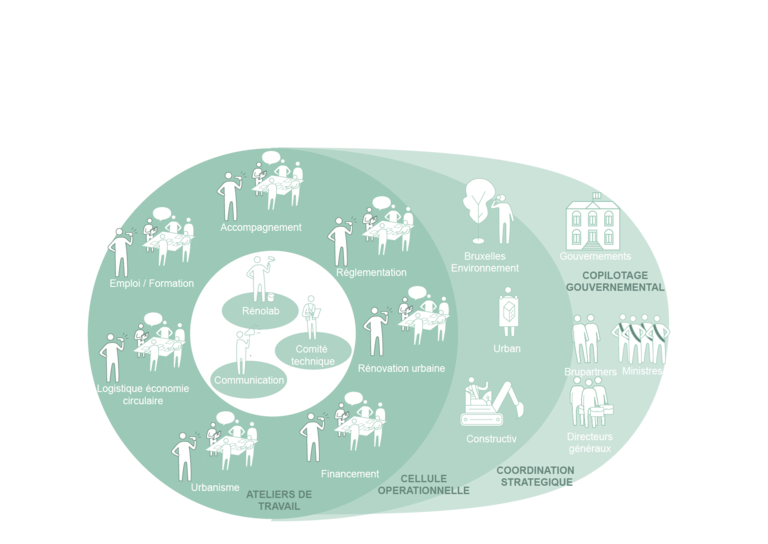
Schéma de gouvernance - image © vraiment vraiment
Collective intelligence
Each of the thematic workshops consist of a multitude of working groups, all of them both transversal and specialized: the reform of renovation bonuses, the establishment of renovation support for individuals, tax incentives, etc.
Within each workshop, the goal for us was to “equip” the project leaders with the necessary tools and roadmaps so they could work autonomously, organize and facilitate their group. For them, we have designed tools and roadmaps based on participatory methods, on the principles of collective intelligence and on the importance given to the user in the creation process.
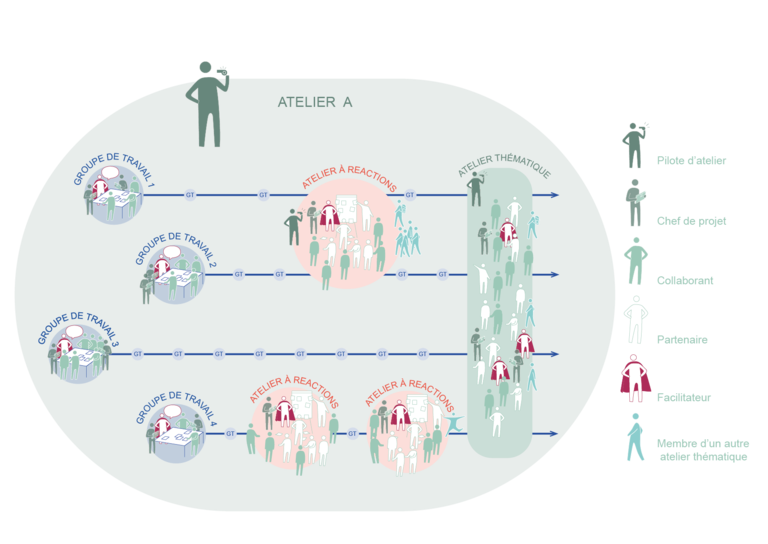
Organisation des ateliers - image © vraiment vraiment
User-centered
When designing public policy tools it is essential not to lose sight of the citizen and the user. Not only political and technical essentials of energy-efficient renovation had to be checkboxed. The needs and expectations of different users had to be taken into account. We opted for an iterative approach, allowing fast and constant feedback and taking into account end-users. For example, we have developed personas and user journeys that project teams use as checklists when in need to transform services for end-users.
Creating a community
Another objective of this project was to create a dynamic community around the Alliance. Various communication and coordination tools between the working groups have been put in place for this purpose. One of the actions we initiated was the drafting of a Manifesto, presented during the public presentation of the Alliance. The annual meetings are another important moment that unites the Alliance community and makes it possible to report on the progress of work in each area. We organized the first edition of these meetings, which was also the official launch of the Renolution Alliance.
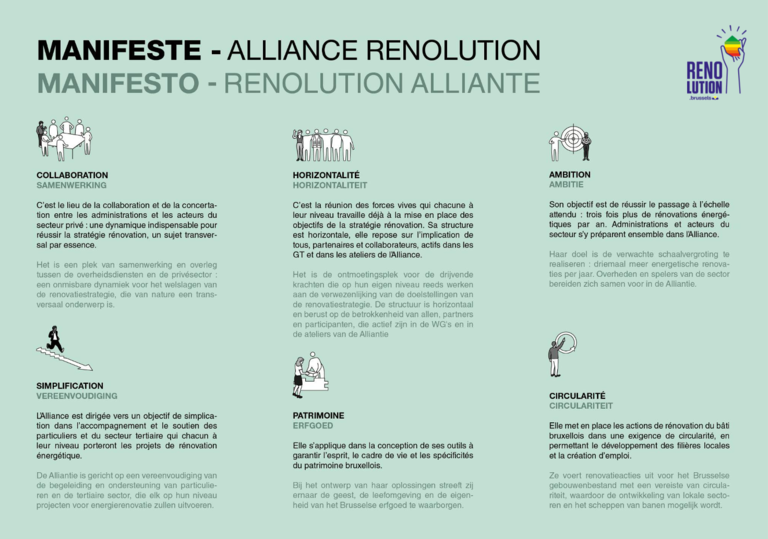
Le manifeste de l’Alliance
“The quality of support from Methos has made it possible to set up an excellent dynamic. We particularly appreciated the collaborative methodologies they put in place, their sense of listening and their agility.”
Isabelle Sobotka, coordinator of the Renolution Alliance at Brussels Environment
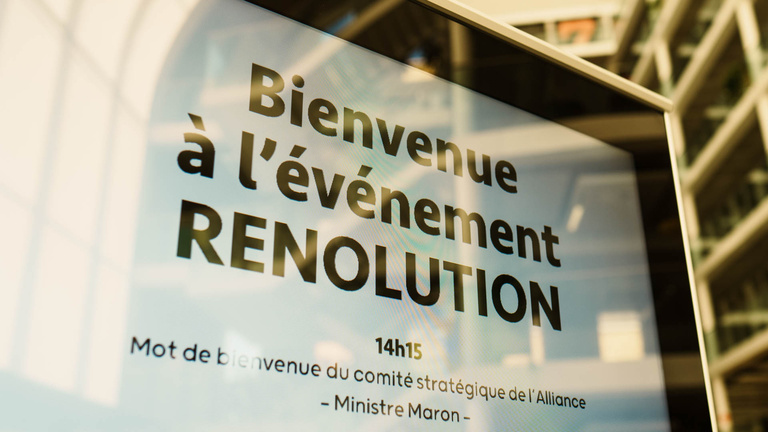
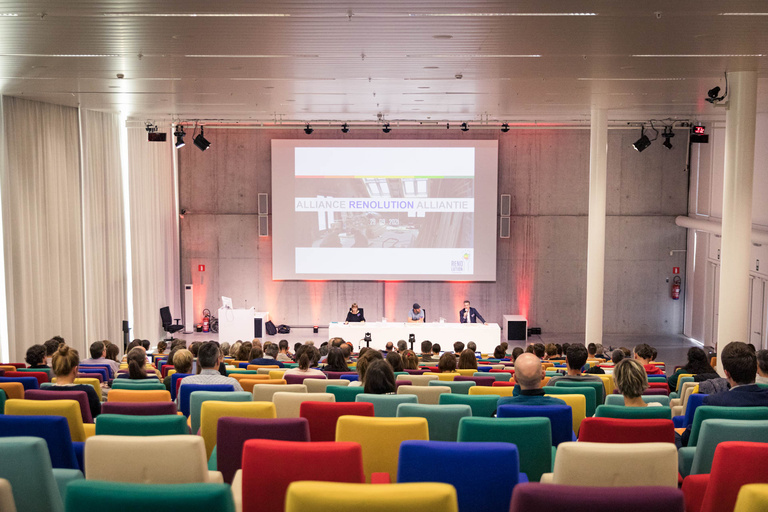
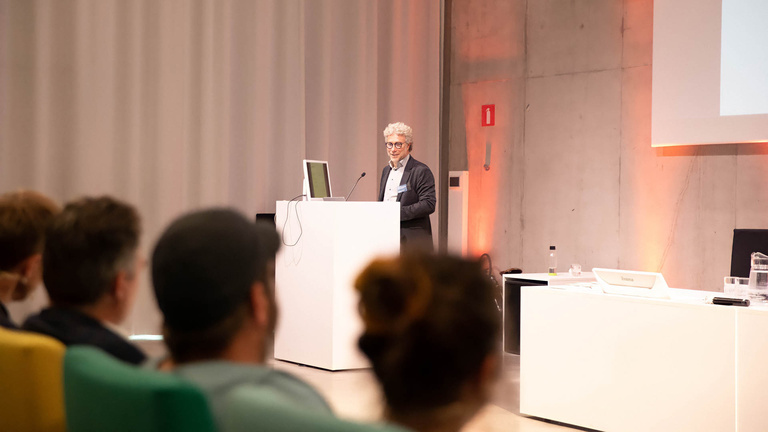
A project commissioned by Bruxelles Environement, in collaboration with Vraiment Vraiment
Links
• Bruxelles Environnement about the Alliance (FR))
• Website Alliance Renolution
Other projects
Energy-efficient housing
The standards for energy-efficient buildings are reshaping the way people live in them. The question, then, is how to factor people into the way new-generation buildings are designed and managed.
Energy-efficient homes are changing people’s lifestyles. On this project, Méthos worked with dwellers, housing organisations and authorities to integrate the human dimension more effectively in new construction standards.
• Download the abstract (fr / nl)
• Bruxelles Environnement
Participation in co-housing projects
An overview of best practices and the most effective ways of applying participatory methods to housing projects. What does participatory design involve? Why involve tenants in it? What strategies and tools work best? A study for the King Baudouin Foundation.
With a view to disseminating co-design philosophy, the King Baudouin Foundation asked Méthos to map out best practices and methods to foster participation in designing or renovating buildings.
Water Poverty
Water is a fundamental right, everyone needs access to sufficient water of good quality. In cities like Brussels, however, some people do not have access to water, a reality which is difficult to accept.
In big cities such as Brussels, some people living in poverty do not have access to water. Together with regional public services and a number of local social partners, Méthos studied this phenomenon and worked on solutions to tackle this problem.
• Download the full report (fr)
